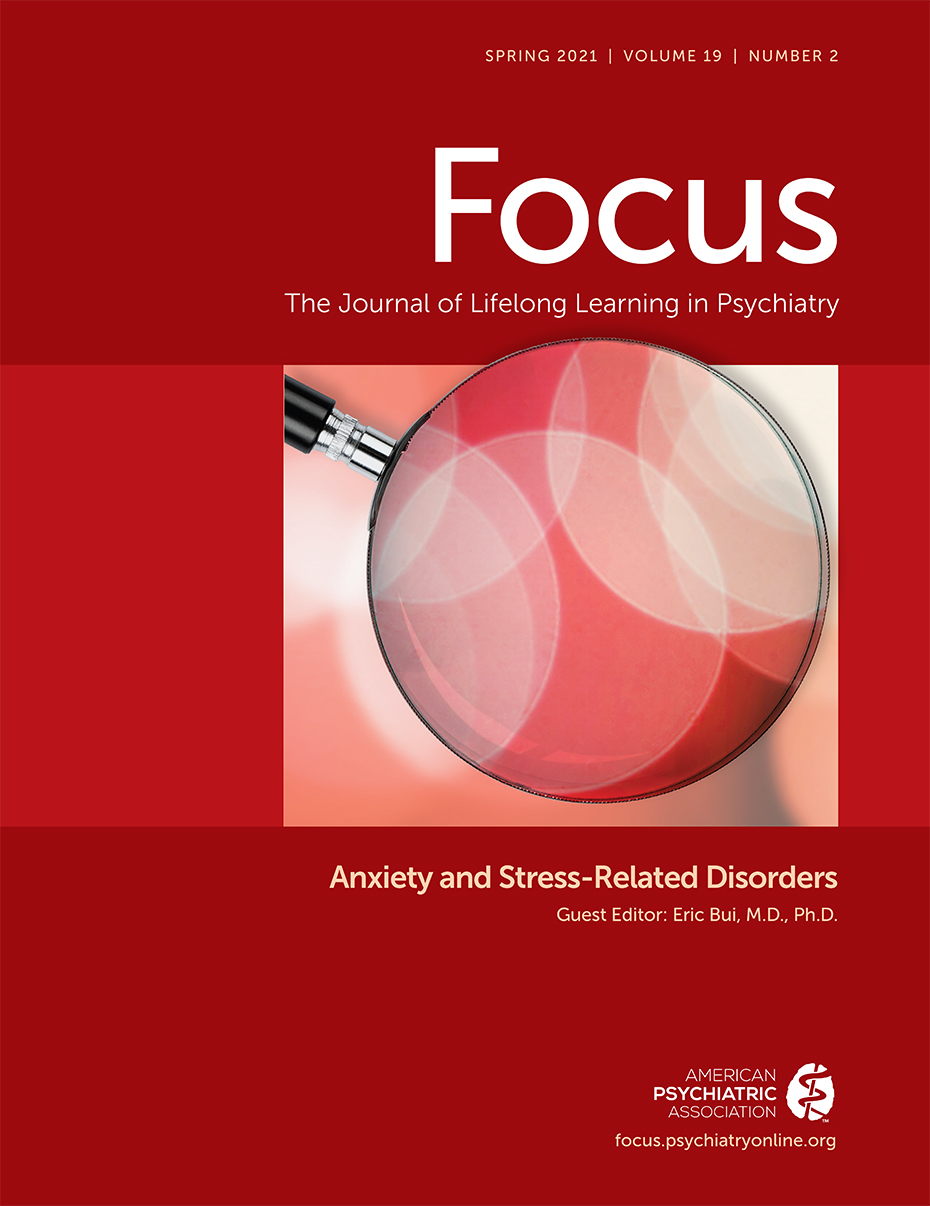Pharmacotherapy of Anxiety Disorders: Current and Emerging Treatment Options
Abstract
Anxiety disorders are the most prevalent psychiatric disorders and a leading cause of disability. While there continues to be expansive research in posttraumatic stress disorder (PTSD), depression and schizophrenia, there is a relative dearth of novel medications under investigation for anxiety disorders. This review’s first aim is to summarize current pharmacological treatments (both approved and off-label) for panic disorder (PD), generalized anxiety disorder (GAD), social anxiety disorder (SAD), and specific phobias (SP), including selective serotonin reuptake inhibitors (SSRIs), serotonin norepinephrine reuptake inhibitors (SNRIs), azapirones (e.g., buspirone), mixed antidepressants (e.g., mirtazapine), antipsychotics, antihistamines (e.g., hydroxyzine), alpha- and beta-adrenergic medications (e.g., propranolol, clonidine), and GABAergic medications (benzodiazepines, pregabalin, and gabapentin). Posttraumatic stress disorder and obsessive-compulsive disorder are excluded from this review. Second, we will review novel pharmacotherapeutic agents under investigation for the treatment of anxiety disorders in adults. The pathways and neurotransmitters reviewed include serotonergic agents, glutamate modulators, GABAergic medications, neuropeptides, neurosteroids, alpha- and beta-adrenergic agents, cannabinoids, and natural remedies. The outcome of the review reveals a lack of randomized double-blind placebo- controlled trials for anxiety disorders and few studies comparing novel treatments to existing anxiolytic agents. Although there are some recent randomized controlled trials for novel agents including neuropeptides, glutamatergic agents (such as ketamine and d-cycloserine), and cannabinoids (including cannabidiol) primarily in GAD or SAD, these trials have largely been negative, with only some promise for kava and PH94B (an inhaled neurosteroid). Overall, the progression of current and future psychopharmacology research in anxiety disorders suggests that there needs to be further expansion in research of these novel pathways and larger-scale studies of promising agents with positive results from smaller trials.
(Appeared originally in Frontiers in Psychiatry 2020 Dec 23; 11:595584)



